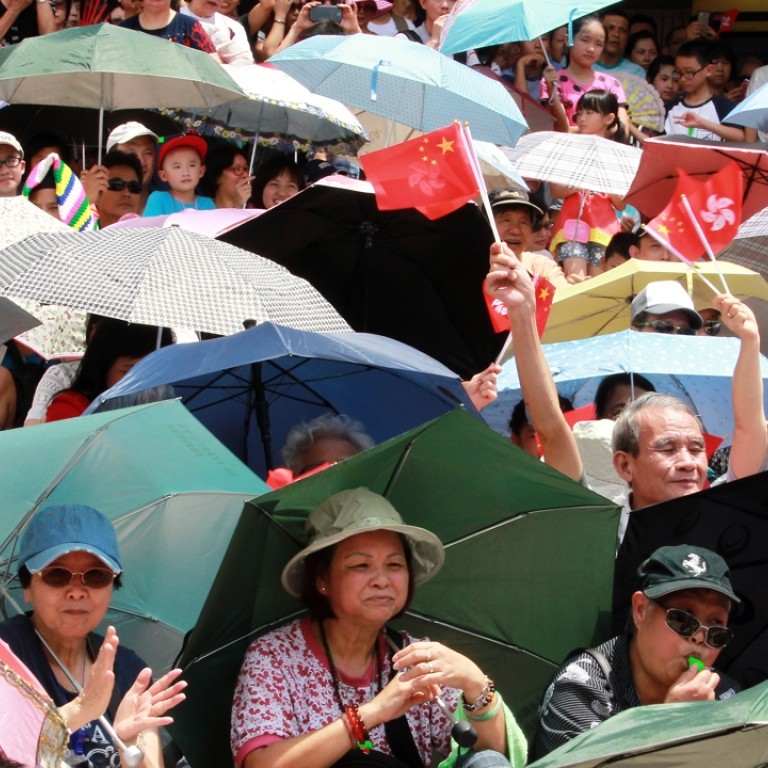
Keeping doors open to foreign workers a key part of making Hong Kong a ‘superconnector’
Hong Kong’s future economic competitiveness will increasingly depend on attracting internationally mobile employees
As Donald Trump is clearly showing in his shamefully bigoted and xenophobic tilt at US Presidency, attacks on foreign workers who are stealing local jobs are surefire vote-catchers. Our “localist” activists in this weekend’s Legco elections are tapping successfully into similar prejudiced veins.
But the regional reality – as true for China, Thailand, Japan and Australia as it is for the United States or Hong Kong – is that our needs for international workers are set to grow steadily more acute as we move further into the 21st century.
We are not just talking about construction workers or home helpers. We are talking about people with serious skills spread right across our economies. As our birth rates fall, and as the number of elderly in our communities rises, so our future economic competitiveness will increasingly depend on attracting internationally mobile employees.
In Hong Kong, where “localist” xenophobes are railing against the mainlanders in our midst, the seeming indifference of our administration to these rising pressures is a source of serious concern for our future competitiveness. A recent survey by the Hong Kong Institute of Human Resource Management reported that already today 90 per cent of surveyed companies find it quite difficult or extremely difficult to find the right talent to fill vacancies. This must get worse.
Shortages are most acute in logistics and transport services, IT, business and professional services, wholesale import and export trading, and restaurants and catering. Talk to most of these companies about their efforts to bring skilled people in from outside Hong Kong after local recruitment efforts have failed, and most boil over with frustration at government reluctance to hear their cries for help.
A report last week in the South China Morning Post by academics from the Chinese University’s Law Faculty described a similar emerging crisis in our health care sector. As our elderly population rises, and the size of our workforce shrinks, so our difficulties in finding staff to care for our elderly are getting more acute by the month.

Today, one third of physiotherapy jobs in nursing homes sit vacant. Despite best efforts to train skilled people, the shortages grow. And there is a simple solution: recruit skilled health care workers from overseas.
A key problem in Hong Kong and in other communities in Asia is a simple xenophobic refusal either to acknowledge a severe and growing problem, or to put in place any comprehensive policy framework to tackle it. Sooner than we think, this failure will come back to bite us – with significant economic costs across the economy.
We already live in profound ignorance over the size of the skills shortages – and the size of the role played across Asia by internationally mobile workers. The International Labour Organisation’s most recent Asia Pacific Migration Report says that Asia Pacific is home to 59 million internationally mobile workers. Australia is today home to 6.4 million international workers. Thailand has 3.7 million, while Malaysia and Japan have 2.4 million apiece. Even China has 2.8 million.
These are big numbers that measure a big problem. Because of official refusal to respond, skilled people can’t effectively be matched with the acute skills shortages in the region. Because the need for such workers is so acute, illicit channels emerge (about 1.3 million of the 10.5 million Filipinos currently working abroad are “irregular” workers, undocumented and working illegally), and agencies that manage the movement of workers are the source of all manner of corrupt practises and extortions.

•First, to get Apec member economies to submit information on skills shortages in a standard format so that a region-wide “skills map” can be built that helps us to see where shortages are gravest, and to help target new vocational training programmes
•Then put in place a transparent and simpler process for managing the movement of international workers. This would not only oversee agencies more rigorously, but try to develop portable social security and health care plans for international workers, and perhaps international worker cards similar to the successful Apec Business Travel Card, to simplify the movement of workers between countries.
•Third, to improve the region-wide recognition of skills and qualifications. Work has already started on this in Apec, and is likely to grow around “pilot” areas like health workers and tourism industry workers.
•And finally, to help international companies to move their executives around their global operations more easily. According to a recent PwC report on nurturing international workers, an average of 12 per cent of the workforce in global multinationals are internationally mobile each year – and while 15 years ago most of these were top-level executives, today only 20 per cent are executive level. Around 50 per cent of their mobile workers are “mid-tier”, and 35 per cent are junior, being sent on international assignments to learn how a global business works.
Whatever the wrong-headed rhetoric of Donald Trump or his counterparts, one of the better ways of ruining our future economic competitiveness will be to shut our doors to these new and keenly-needed skills. As a city economy, Hong Kong will never meet its skills needs from within our own boundaries, however good our colleges and universities. Our leaders need to stop pretending there is no problem, and develop comprehensive plans to enable us to remain the “superconnector” they claim we are. Keeping our doors wide open to international workers must be a key part of that plan.
David Dodwell is executive director of the Hong Kong-Apec Trade Policy Group

